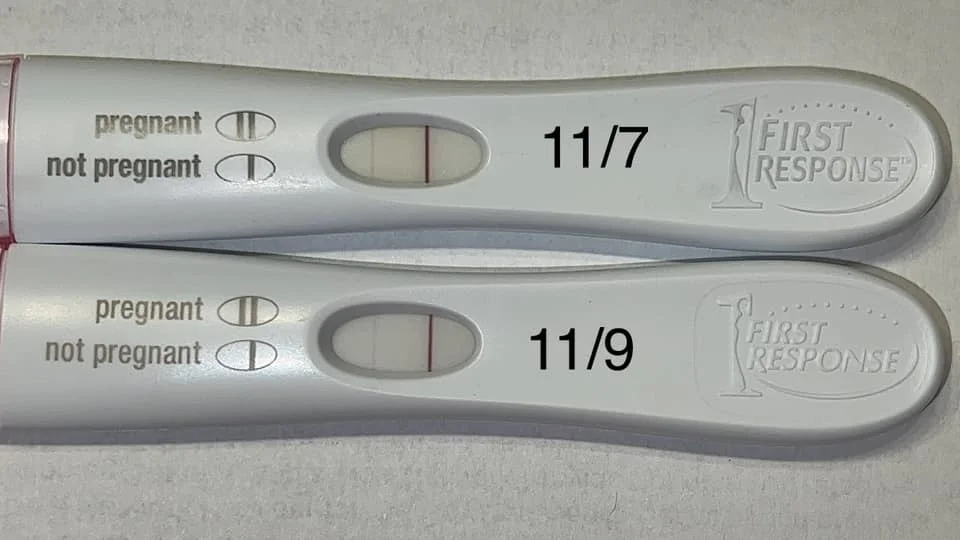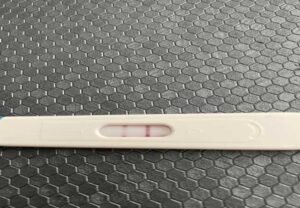It is estimated that only about 20-30 percent of women who ovulate will get pregnant each month. If you’re trying to conceive (TTC), you may be wondering if you can increase your chances by knowing when you’re most fertile. The 12 DPO success story depends on the menstrual cycle. For example, if you have a 35-day cycle, you will ovulate around day 21.
A multicenter study has produced a database of 7017 menstrual cycles contributed by 881 women. It provides improved knowledge on length and location of the “fertile window” (identified as of up to 12 days duration) and the patterns and level of daily conception probability.
Colombo B, Masarotto G. Daily fecundability: first results from a new data base. Demogr Res. 2000 Sep 6;3:[39] p.. PMID: 12178154.
What’s important to remember is that if you’re trying to get pregnant, you need to have intercourse before you ovulate.
A retrospective study was conducted on 657 women consulting during the 1st trimester of pregnancy after having discontinued a contraceptive method in order to become pregnant.
Spira A. Frequence des rapports sexuels, age des parents et leurs relations avec la fecondabilite [Frequency of intercourse, parental ages, and their relation with fecundability]. Contracept Fertil Sex (Paris). 1979 Jul;7(7):513-5. French. PMID: 12336000.
This is because sperm can live in the female body for up to five days. Therefore, by having intercourse before ovulation, you’re giving the sperm a better chance of fertilizing the egg.
Beyond 12 DPO: The Waiting Game
While the two-week wait can be nerve-wracking for many trying to conceive, it’s essential to understand that a negative result at 12 DPO doesn’t necessarily spell the end of one’s pregnancy hopes for that cycle.
It’s the stories and personal experiences shared by many women that can provide solace and optimism during this anxious period.
12 DPO bfn success stories
There are many success stories as maximum mothers become pregnant during that ovulation period. But, What’s the secrets behind that success stories?

Let’s talk about them first:
Have intercourse before you ovulate
If you’re trying to get pregnant, you need to have meet your partner before you ovulate. This is because sperm can live in the female body for up to five days, but the egg can only be fertilized for 12 to 24 hours after ovulation.
If you have met your partner during the five days before ovulation, the sperm will be waiting in the fallopian tubes when the egg is released.
The best period for Intercourse
You’re most likely to get pregnant if you have met my partner within 24 hours of ovulation. But you can also get pregnant up to five days before ovulation. This is because the sperm can live in the female body for that long.
If you have met with him more than five days before ovulation, the sperm may not be alive when the egg is released.
Tips to figure out when you’re ovulating
There are a few ways to figure out when you’re ovulating. You can keep track of your menstrual cycle on a calendar. Another way is to track your basal body temperature.
12 DPO BFN success stories from my experience
It’s hard to know what to expect when you’re 12 days post-ovulation and you’ve gotten a negative pregnancy test result.
Related Post: Ovulation test line darker than control line pregnant
You may have been hoping for a positive result, or you may have been trying to stay calm and not get your hopes up. Either way, a negative result can be disappointing.
When you’re feeling down about a 8DPO BFN test result, it can help to read about other women’s experiences. Here are some success stories from women who were in your shoes.
12 dpo bfn then bfp success stories
I was really upset when I got a negative test result at 12 dpo. But it is not abnormal to see during 4 to 5 weeks twin pregnancy. However, for single mother that is a different story.
See the picture for a twin mother when she tested positive at 12 dpo. The evap line is pretty obvious, however, as a single mother you won’t expect to see such vivid evap line.

I had all the pregnancy symptoms and I just knew I was pregnant.
I decided to wait a few more days and test again. I’m so glad I did, because I got a positive result a few days later!
I was really nervous about taking a pregnancy test, so I waited until I was 14 dpo to test. I was so relieved when it was positive!
Finally I ran a test during 12 dpo and got a negative result, but I didn’t give up. I tested again at 13 DPO and find a success story of mine, sigh!
I was really discouraged when I got a negative test result, but I decided to wait a few more days and test again.
I’m so glad I did, because I got a positive result a few days later!
The Biology Behind Testing
It’s pivotal to comprehend that implantation – the process where the fertilized egg attaches itself to the uterus lining – can occur anywhere between 6-12 DPO.
Following implantation, it takes a few days for the hormone hCG (human chorionic gonadotropin) to reach detectable levels in the bloodstream, and subsequently, in urine.
Given this biological timeline, testing too early can result in a false negative due to insufficient hCG levels, even if a woman is pregnant.
Community Stories: Hope and Patience
Communities like BabyCenter and Glowing provide a haven where women can share their experiences. It’s within these spaces that narratives emerge, highlighting that the journey to a BFP (Big Fat Positive) isn’t always straightforward.
- Poly from the BabyCenter community shared her list of symptoms, from dizziness to soreness. Her post is a testimony to the myriad of changes and sensations women undergo during the two-week wait. While she obtained a faint line at 9 DPO, it’s crucial to remember that evaporation lines or even false positives can sometimes occur, especially with early testing.
- Mrsmoo’s story resonates with many who seek solace on the internet. She relied on sensitive tests like the FRER but faced repeated BFNs. It’s worth noting here that sensitivity doesn’t always mean accuracy. Some women naturally produce lower levels of hCG, making early detection challenging. As Moomin rightly pointed out, “There is hope until AF shows!” Many women don’t register a positive until days after their missed period.
- Taralara’s experience is another beacon of hope. She didn’t register a positive until 15 DPO, with the result getting clearer by 18 DPO. This narrative reinforces the idea that patience is paramount in the TTC journey.
- From the Glowing community, Danielle’s despair is palpable. But the response from Mika, who only saw a BFP at 18 DPO with her first child, underscores the variability in women’s experiences and the unpredictability of the testing timeline.
Managing the Emotional Roller-coaster
It’s essential to take care of oneself emotionally during this period. If you find yourself in the 12 DPO BFN club, here are some coping mechanisms:
- Avoid the Testing Trap: While it’s tempting to test repeatedly, doing so can heighten anxiety. Decide on a testing strategy beforehand, and stick to it.
- Connect with a Support System: Engage with online communities or confide in a close friend or family member who understands your journey.
- Focus on Wellness: Incorporate relaxation techniques like meditation or gentle exercise routines to manage anxiety.
Related post:
Conclusion
As a health writer and maternal advocate, I’ve witnessed countless stories of hope, perseverance, and the unique paths women tread on their journey to motherhood.
The key takeaway from these stories is that while technology has given us tools to predict and detect pregnancy early, nature has its timeline. Patience and understanding of one’s body are paramount during the two-week wait.
The body’s cues, combined with scientific tests, will eventually reveal the story of conception. And until then, hold onto hope, and trust the journey.
